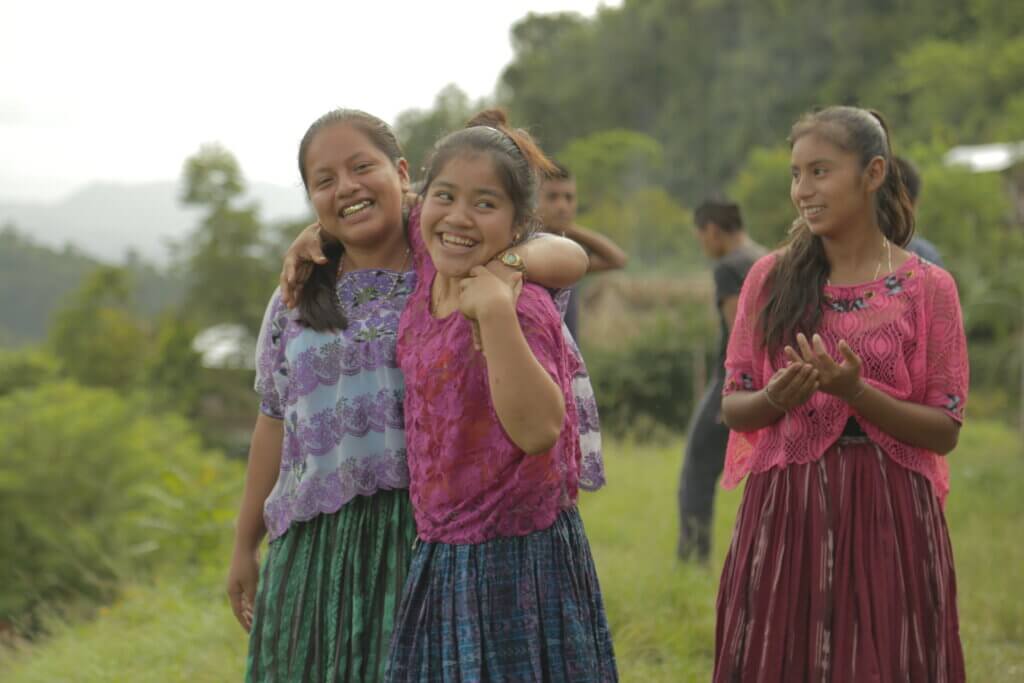
Did you know that there are over 5,000 different Indigenous groups across 90 countries in the world today? These communities represent an immense diversity of tradition and knowledge, but they are bound by the common values of interconnectedness between all living things, respect for the natural world, family, culture, reciprocity, cooperation, and sustainability.
Tragically, colonization, genocide, and systemic racism have historically threatened the safety, self-determination, and survival of Indigenous communities. This has contributed to a number of health risks for Indigenous women and girls, including high rates of teen pregnancy, maternal death, and violence against women.
Indigenous women have always been leaders and teachers within their communities. Today, UNFPA works with Indigenous communities around the world to reach every woman and girl with lifesaving sexual and reproductive health care. Here are stories from some Indigenous leaders we’ve worked with:
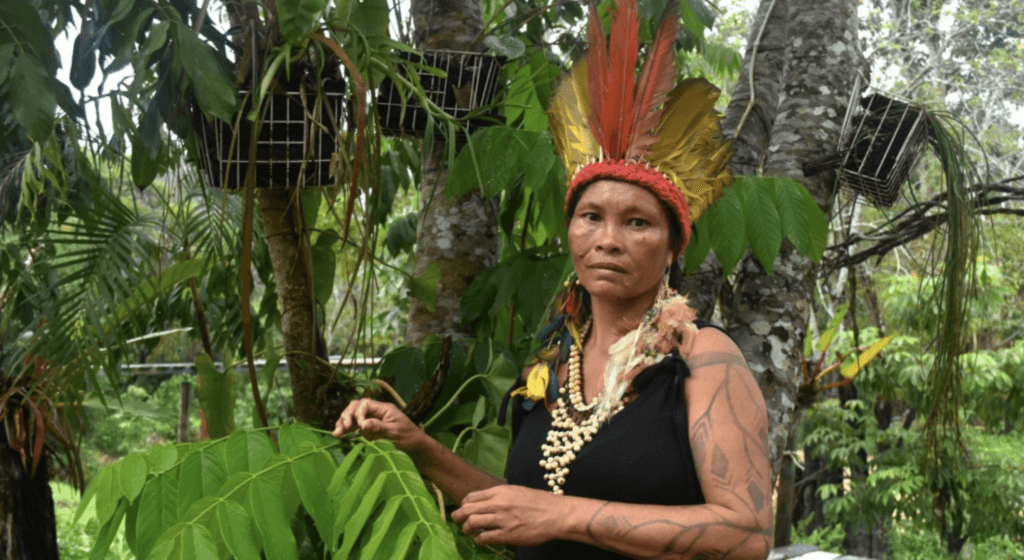
Lutana
Lutana Ribeiro, the sole female chief of Parque das Tribos in Manaus, Amazonas, is at the forefront of the battle against gender-based violence in indigenous communities in Brazil.
A respected figure and staunch human rights defender, Lutana spearheaded a series of UNFPA workshops aimed at aiding survivors of violence against women.
These workshops not only educated women about the various forms of violence but also about accessing social support and legal protections, prominently highlighting the Maria da Penha Law that strengthens legal safeguards for women.
Despite the systemic challenges in Amazonas, where the intentional killing of women or girls is rising, Lutana’s efforts are sowing the seeds of empowerment and resilience, ensuring that women are better equipped to resist and challenge violence.
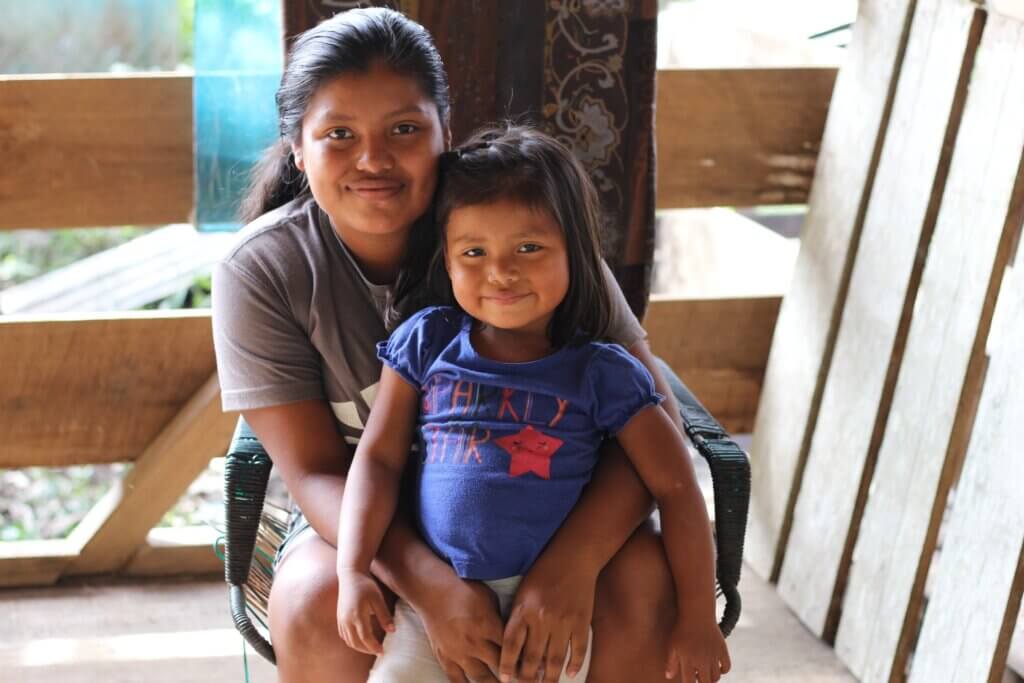
Cheymi
Cheymi is a dedicated mother and outspoken youth leader in Costa Rica. She lives in her rural community in Cabécar Indigenous territory deep in the Talamanca mountains.
This area has one of the highest teen pregnancy rates in the country.
When she became pregnant at 15 she was pressured by community members to quit school. But Cheymi decided to continue her education.
Then, Cheymi was invited to participate in UNFPA-supported youth activities in her community. She saw an opportunity to become a leader and advocate for the reproductive rights of Indigenous women and girls.
“After I got pregnant, those issues mattered more to me,” she explained. She wanted to be “a bridge of information within my territory and within my community, where I could tell my experience to other girls, let them know that they can take care of themselves, that there are contraceptive methods.”
Now, at 18, Cheymi continues to utilize her gift with words to challenge gender stereotypes. Such stereotypes are harmful toward women and girls and can limit the opportunities available to them.
Her independent spirit carries her through as she strives to create a better life for her 3-year-old daughter, Adeline.
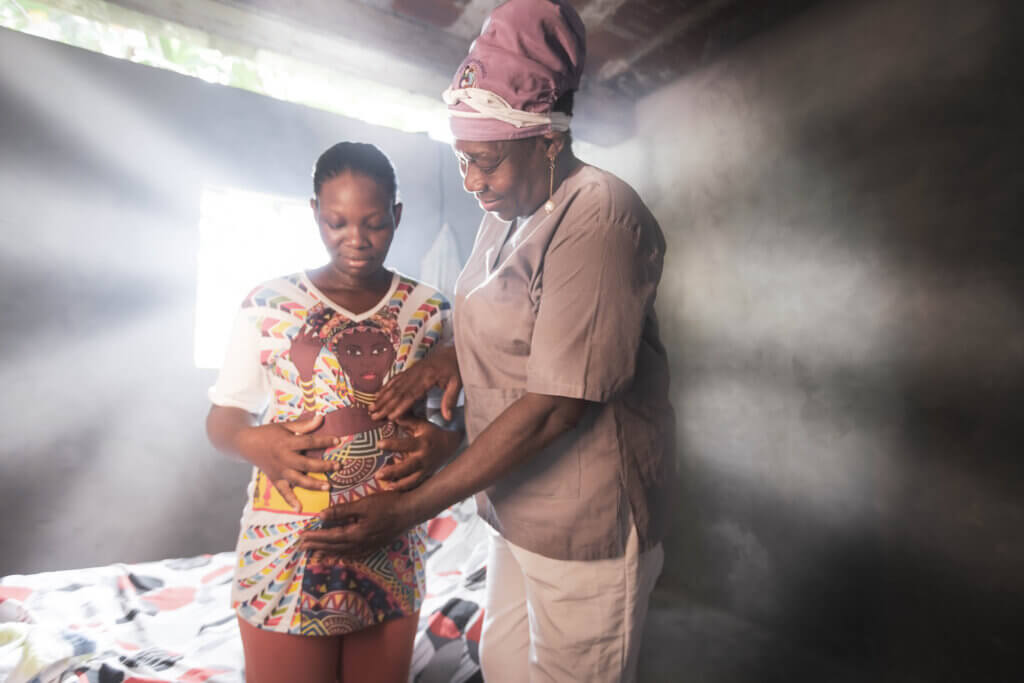
María
María is a woman from the Wayúu and Arhauco peoples in the north of Colombia. She needed urgent medical care when she went into labor. Her life, and the life of her child, were in danger.
She was reluctant to go to a local clinic. Leyla, community health worker, reassured Maria that her Indigenous traditions and perspective would be respected if she sought medical care.
Leyla was both a skilled midwife and a traditional practitioner as honored by elders of the Wayúu matriarchal society.
María trusted Leyla and followed her to the clinic. There, Maria had access to an interpreter and even slept in a bed similar to the hand-woven hammocks, ‘chinchorros,’ she used in her home.
She gave birth to a healthy baby boy.
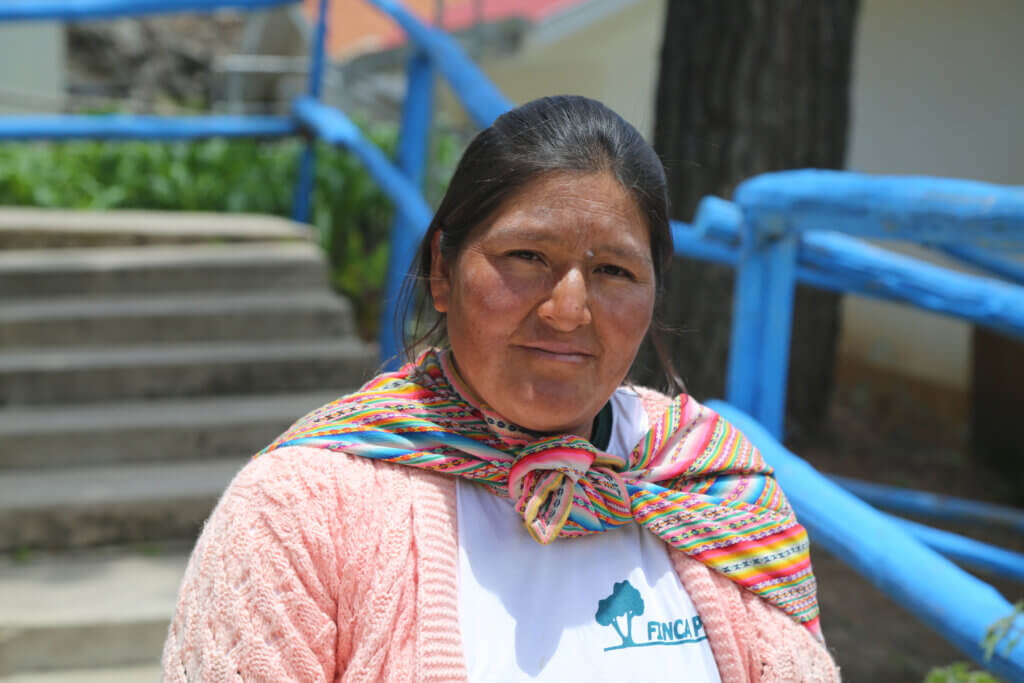
Edelmira
Edelmira lives in Peru in a largely Indigenous community in a remote mountainous province that towers 2,000 meters above sea level.
She remembers when women used to die giving birth at home. But things are different now.
With the Churcampa Health Center now operating in the community, maternal health has greatly improved.
Much of the change is thanks to a deliberate effort by health officials to respect the traditions of the community. One of these traditions is vertical childbirth, where mothers give birth with the assistance of a rope hanging from the ceiling. This is preferred by the community over giving birth while lying on a bed.
Edelmira has had five children. The first ones were at home, but then she started giving birth at clinic.
“Now we like to come to the Churcampa Health Center because they treat us like we are at our home, and [we can deliver] with the rope, and the way we like to be treated,” Edelmira told UNFPA. “Our husbands also participate, and when they are not there, our families support us, just as we like it.”
Along with other women in the community, Edelmira is encouraging her peers to receive health services at the center.

The Challenges
As Cheymi, Maris, and Edelmira’s stories demonstrate, Indigenous women and girls face unique challenges that prevent them from getting the lifesaving care they deserve.
Some of these barriers include ignorance about Indigenous culture and traditions, historic disinvestment in Indigenous communities, exclusion from social, political, or economic decision-making bodies, language barriers, geographic exclusion. Altogether, these barriers lead to health risks like high rates of teenage pregnancy, maternal death, and violence against women. Across the globe, Indigenous women and girls experience significantly worse maternal health outcomes than majority populations.
But, improving the health of Indigenous women and adolescent girls is achievable.
UNFPA is working with local communities to address pressing challenges for Indigenous peoples across Latin America and around the world.
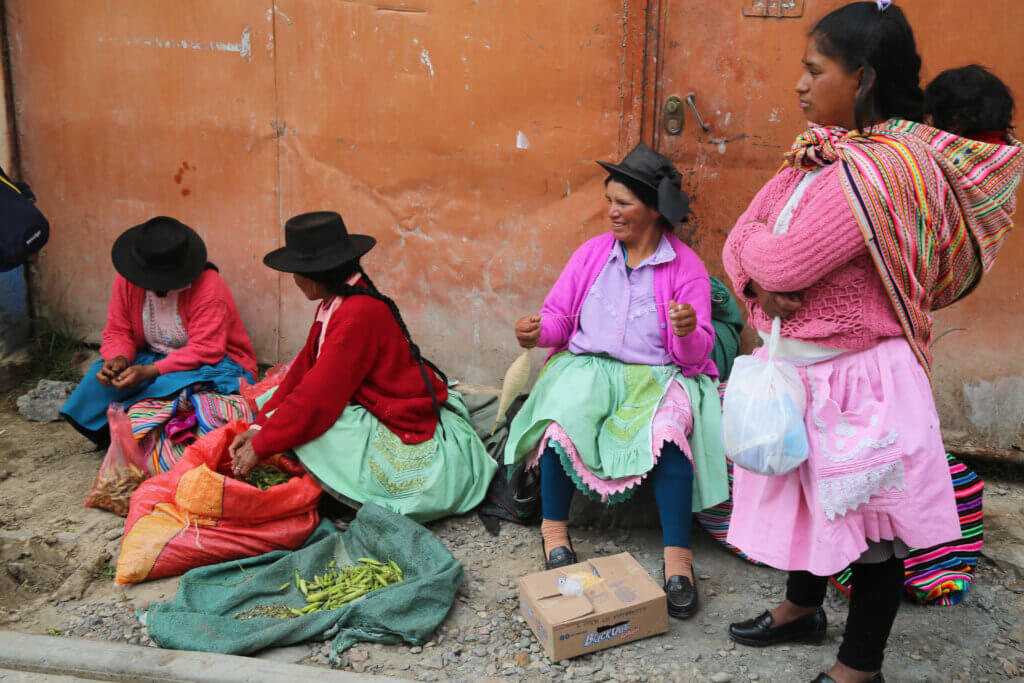
Working Together
Indigenous women and girls have always been leaders, health advocates, and collaborators. UNFPA is working with Indigenous communities around the world to ensure women and girls have access to respectful, culturally-sensitive care and that the traditions of their communities are honored.
Some of these collaborations include:
Cameroon, Bolivia, and Mali: We raised awareness of violence against women and girls and ensured support was available to survivors of violence. Often services to support survivors are not language or culturally appropriate or may inaccessible by Indigenous communities.
Uganda, India, and South Africa: We worked with Indigenous communities to raise awareness of the harms of practices like child marriage and female genital mutilation.
Bolivia, Ecuador, Guatemala, Mexico, Paraguay, Peru, and Costa Rica: We increased access to sexual and reproductive health services, including midwifery training for Indigenous women and the inclusion of Indigenous medicines and practices in midwifery care.
Kenya, Nepal, and more: UNFPA supported efforts to better include Indigenous communities in census data, including in some countries where Indigenous communities were counted for the first time. This data is essential for assessing the needs of these communities and increasing access to services like health care.
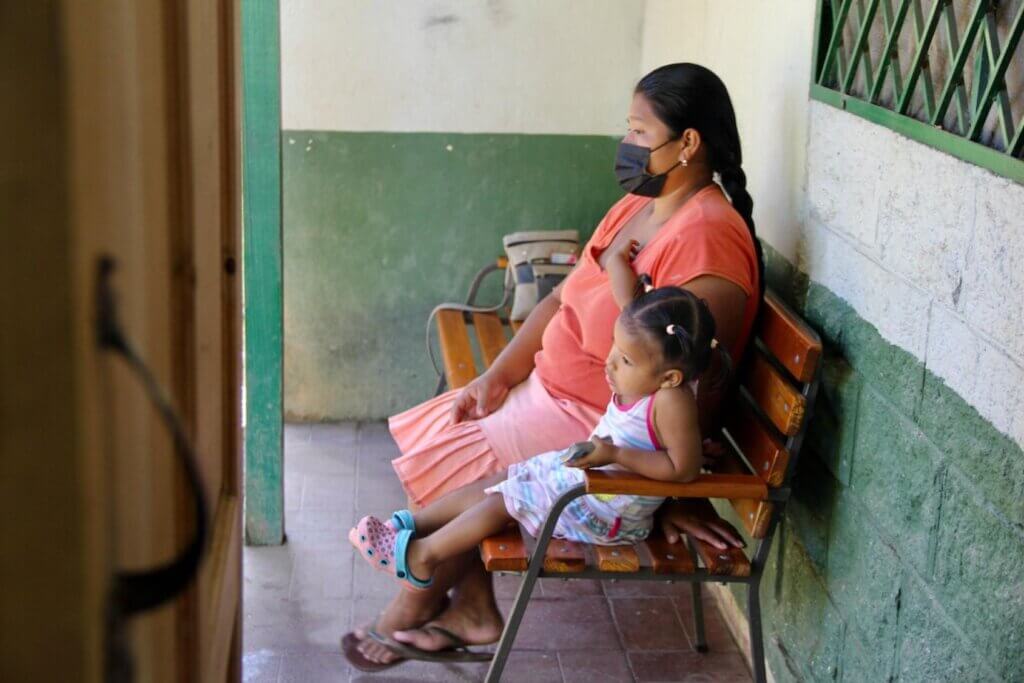
Here first. Here always.
Cheymi speaks lovingly and with hope for the future about her daughter, Adeline, “She has grown up in spaces where she can be herself. Adeline has no limitations…She asks questions. She is curious… These are things that fill me up because I know that she is on the right track.”
With your support, we can continue to build a world where girls like Adeline have the care they need to reach their fullest potential. Stand with Indigenous women and girls today. Donate.
Related Stories: